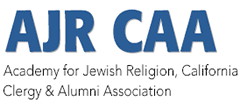Rabbi Arinna Shelby is a community rabbi who teaches adult education on a variety of Jewish topics, officiates at life cycle events, and provides pastoral counseling. She previously served small congregations while simultaneously working in the field of hospice and bereavement. Prior to her career as a rabbi, she worked as a psychotherapist and later as a social service and healthcare administrator. Her book, Jewish Women Speak Out, won a national distinguished publication award from the Association for Women in Psychology.
Position: Rabbi
Specializations
- Bereavement Counseling
- Chevra Kaddisha/Post-Death Ritual
- Conversion Classes
- Funerals, Memorial Services & Unveilings
- Hospice Chaplaincy
- Visiting the Sick/Bikkur Cholim
Thesis Title
JEWISH BIOETHICAL DECISION MAKING AT THE END OF LIFE:
A Transdenominational Approach (2008)
Abstract:
This paper presents a justification and process for bioethical decision making at the end of life from a transdenominational Jewish perspective. While a large body of literature has been written on the topic of Jewish bioethics, all of it is derived from the movement within Judaism to which a given author subscribes. The paper attempts to synthesize the opinions of Orthodox, Conservative, Reconstructionist, and Reform thinkers into one document that will provide useful information to Jews of any background who are facing end-of-life decision making.
Two primary factors have created the need to make medical decisions at the end of life: increased longevity and advances in technology. The average lifespan in the United States has doubled in the last century. People are now far more likely to die of a chronic illness than an acute one. Medical care has now progressed to the point where disease palliation is possible, whereas less than a century ago people either died or were cured. This combination of factors has introduced a host of moral questions that previously didn’t exist, such as the circumstances under which to prolong life, the obligation to treat disease, and the allocation of scarce medical resources.
The major portion of the first half of this paper describes both Western secular ethics, because that is the basis of the provision of medical care in this country, and Jewish bioethics, because that is the concern of the audience being addressed. For the benefit of those who wish to avail themselves of Jewish teachings that pertain to end of life, the section on Jewish bioethics is described in depth. It provides the textual references for the precepts that comprise the Jewish approach to bioethics as well as describing the components that form the basis of decision making.
Using the concepts discussed above, each movement within Judaism is analyzed for its approach to decision making, particularly in regard to the role of halakhah. This section looks at the methodology employed by a sampling of authors representing each movement. Delineating the various positions makes it clear that Judaism is not monolithic in its approach to end of life, yet at the same time these positions are not polarized. The reader may come to appreciate the flexibility of interpretation that is truly possible. Looking at the “how” of decision making forms the transition into the next section that details the medical information necessary for informed choice.
The second half of the paper looks more specifically at the medical choices one faces at the end of life. It describes problematic definitions of death that have arisen largely due to advances in medicine. It also provides case examples of compromised medical states requiring ethical decision making. The cases include discussion from differing denominational viewpoints and provide a real life perspective on the concepts that have been discussed.
The last section of this paper discusses advance directives and compares different versions published by the major Jewish movements. An advance directive is not only important if someone has lost the ability to communicate his or her wishes, but it can serve as a guide in approaching the decision making process. Appended to this paper is an in-depth transdenominational advance directive that allows Jews from any movement to make detailed decisions about the goals, duration and course of treatment.
Email ravleahshira@gmail.com


